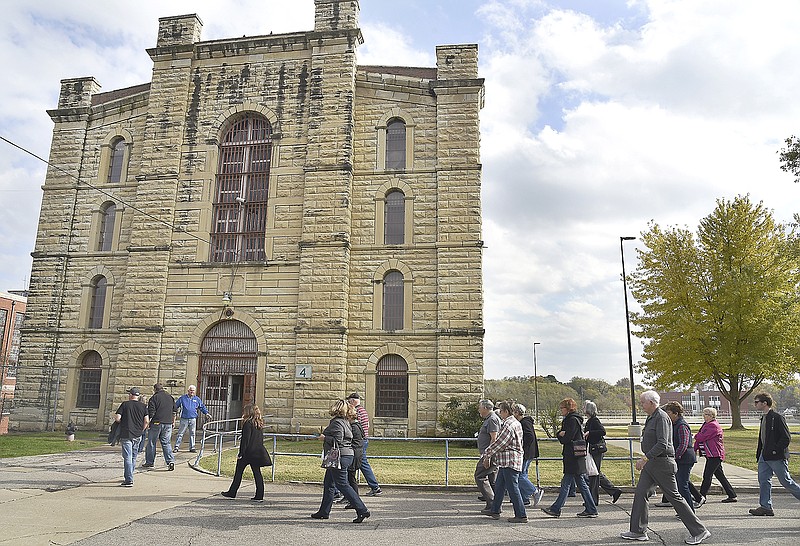A land-conveyance contract between Jefferson City and the state of Missouri will close July 1, city officials said Friday during a meeting of the Missouri State Penitentiary Community Partners.
The Jefferson City Council approved an agreement Monday to transfer 32 acres of land surrounding the old Missouri State Penitentiary at 115 Lafayette St. to the city for a nominal price of $10. Regional business and government officials hope it can become a mixed-use project that injects life into the surrounding neighborhood.
Under the agreement, the city must select a developer within two years and start construction within four years. Jefferson City Counselor Ryan Moehlman said the city hopes to issue a Request for Proposal later this summer.
"We'll need to give developers some time to get a look at it, so it's hard to say, but before the end of the year I think is a very realistic goal," Moehlman said. "You really don't want to shortchange the amount of time a developer has to work on a proposal."
First, Moehlman said, the city may hire an attorney who could issue the RFP.
Randy Allen, Jefferson City Area Chamber of Commerce president, asked whether the city wants to hire a developer who will be responsible for developing all of the acreage or if the city wants several developers to undertake smaller-scale projects.
"I would prefer the latter rather than put all your eggs in one basket," Allen said. "We need someone to tell us how to structure this."
City leaders hope a convention center or hotel could anchor any redevelopment on the site. Entertainment venues, museums, condos and apartment complexes would be allowed to be built on the site. Standalone uses like these can make up no more than 50 percent of the acreage.
Secondary uses like full-service and fast-casual restaurants, coffee shops and retail shops could be built on the property. Secondary uses like these can be integrated with a standalone use or grouped together with at least two other secondary-use entities.
Green spaces and pedestrian areas could also be built within the property. The city will also construct the MSP Parkway that would extend Chestnut Street and provide vehicular access between the Lafayette Street cul-de-sac and Chestnut Street.
Fast-food restaurants, enclosed shopping malls and single-family housing will not be allowed. Moehlman said the city and state want to ensure the property becomes a mixed-use area.
"What we are seeking to avoid are small, individual, stand-alone establishments," Moehlman said. "When you have these small type uses who want to group together, it's creating a critical mass of users so you're not spending a lot of ground providing parking and things that take a lot of space."
The Jefferson City Convention and Visitors Bureau currently conducts tours of buildings on the site. Proceeds from the tours go toward historic-preservation causes. The historic gas chamber and prison buildings on the site were not included in the deal.
The land-conveyance agreement allows any developer to demolish a wall surrounding the penitentiary with state approval. Cathy Brown, Missouri Office of Administration director of facilities, said the state wants to be flexible when working with developers as they propose uses for the site.
"The state is not going to be unreasonable in this," Brown said. "The state is open to seeing what opportunities are there and why."
The land-conveyance agreement suggests the city also redevelop buildings surrounding the property like the 110-year-old shoe factory at 1101 E. Capitol Ave.
In January 2017, the Springfield-based Vecino Group proposed building 75 apartments for families with incomes of $24,000-$35,000. The project stalled in December after the Missouri Housing Development Commission opted not to match $140 million in federal funds to fund the Missouri Low-Income Housing Tax Credit.
Attendees at the meeting said parts of the shoe factory appear to be in good shape. One wall might have a tree growing through parts of it that could compromise the structure, they said.
Moehlman noted the agreement does not require the shoe factory to be developed. Ward 4 Councilman Ron Fitzwater said the city hasn't heard from the Vecino Group recently. So the city is focused on trying to find a developer for the building as part of this project.
"If we get this project going, that will be a good opportunity," Fitzwater said.

